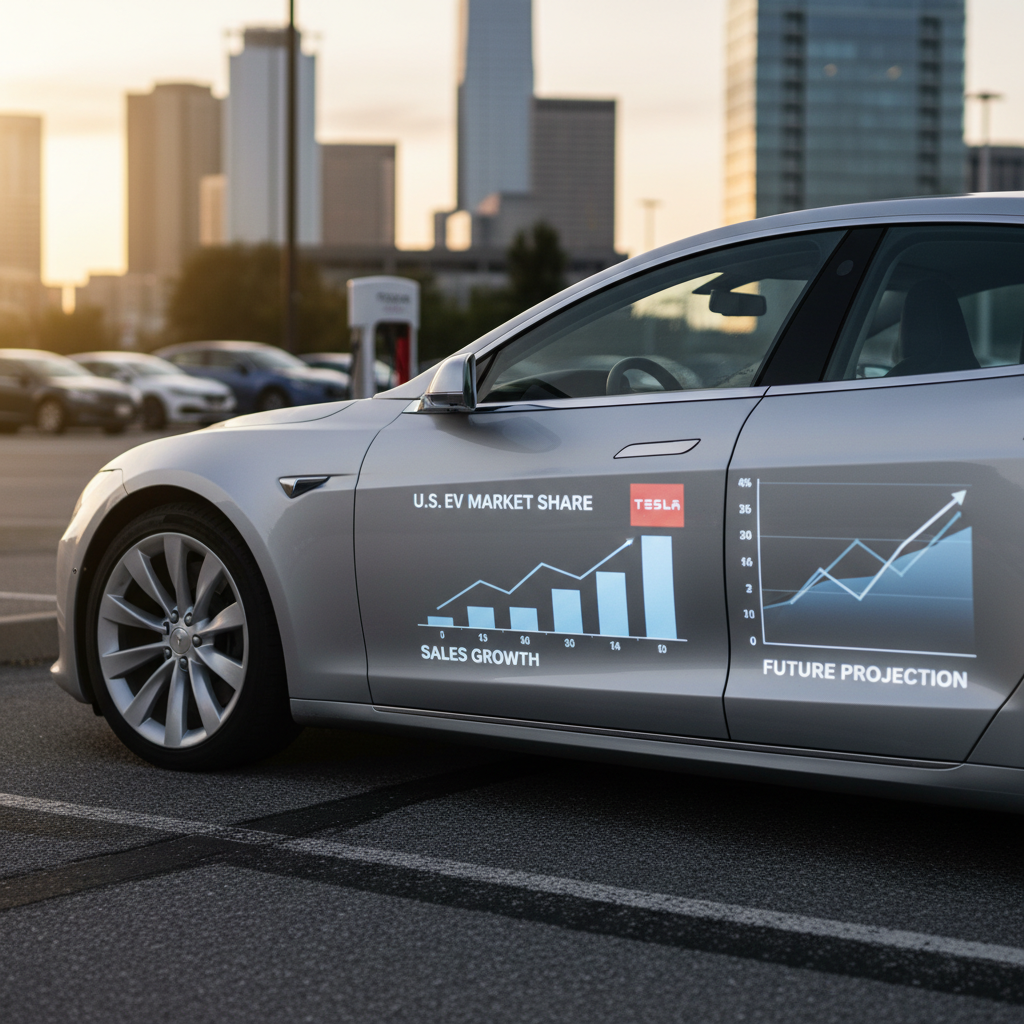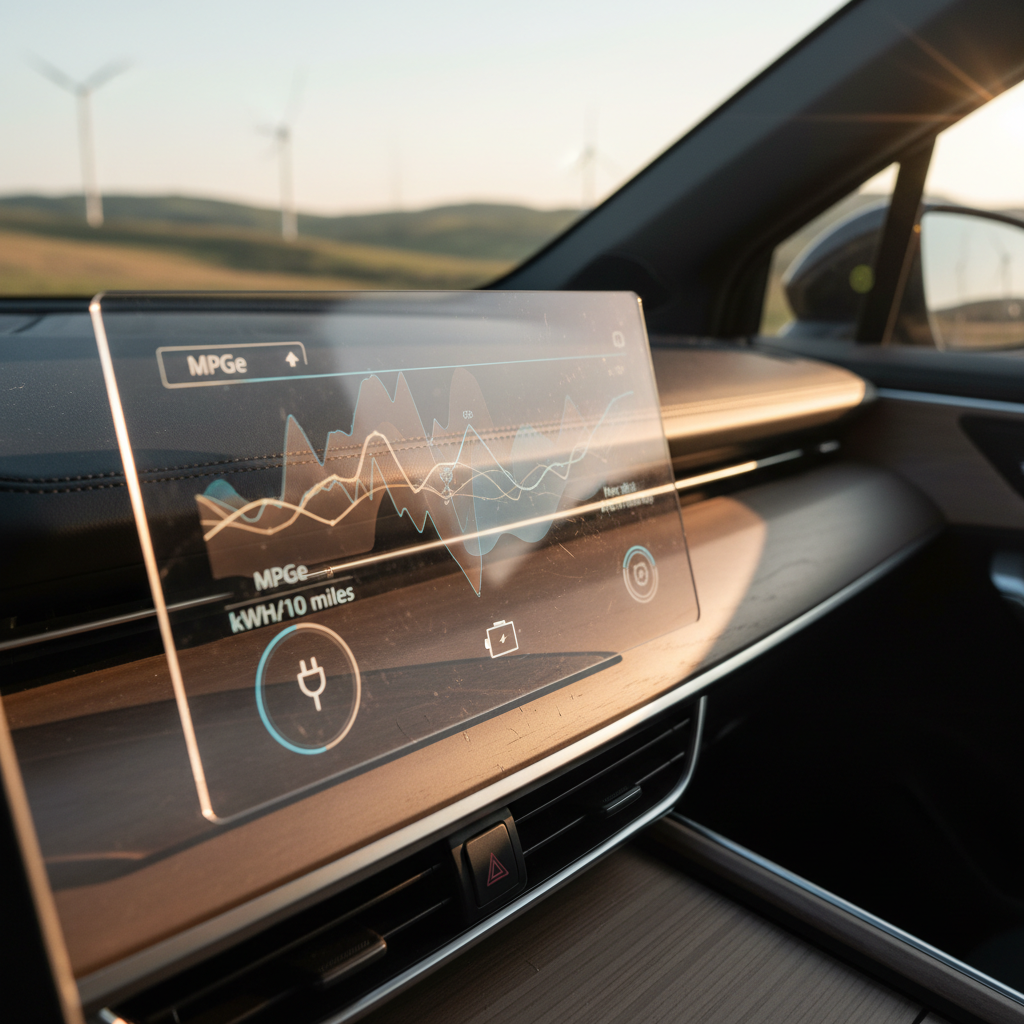If you’ve been typing “Chevy Bolt hybrid” into search bars, you’re not alone. A lot of shoppers know they want great fuel economy and low running costs, but they’re fuzzy on where the Chevrolet Bolt fits: is it a hybrid, a plug‑in hybrid, or a full electric car, and which one actually makes sense for your life?
Quick takeaway
Why People Search for a Chevy Bolt Hybrid
From a shopper’s perspective, “hybrid” has become shorthand for “anything that saves gas.” So when you see a small Chevy with a silent powertrain and fantastic efficiency, your brain naturally reaches for that label, hybrid, whether or not it’s technically correct.
Three Reasons "Chevy Bolt Hybrid" Pops Up So Often
You’re not wrong to be confused, Chevy’s lineup and naming haven’t helped.
Bolt sounds like Volt
The Chevy Volt was a plug‑in hybrid sedan with a gas engine backup. The Chevy Bolt is a hatchback that’s all‑electric.
One letter, totally different powertrains.
Hybrid = good mileage
For years, if you wanted to save fuel, you bought a Prius‑style hybrid. Now EVs like the Bolt offer even lower running costs, but old habits die hard.
Shoppers just want “green”
Most people aren’t chasing acronyms. They want a car that’s cheap to run, easy to live with, and better for the air. Whether that’s hybrid or EV is mostly a means to an end.
How to think about it
Is the Chevy Bolt a Hybrid? Clearing Up the Confusion
The short answer: no, there has never been a Chevy Bolt hybrid. The Bolt has always been a battery‑electric vehicle (BEV). There’s no gas tank, no engine, no oil changes, and no tailpipe. Chevy has sold two versions in the U.S.:
- Chevrolet Bolt EV (2017–2023): Compact 5‑door hatchback, up to 259 miles of EPA‑rated range in later years.
- Chevrolet Bolt EUV (2022–2023): Slightly larger, more SUV‑like version with extra rear legroom and available Super Cruise, EPA‑rated at about 247 miles of range.

Where it gets messy is the Chevy Volt. That car, sold from 2011–2019, was a plug‑in hybrid. It could go 30–50 miles on electricity and then run as a gasoline hybrid. Many shoppers today remember the Volt and assume the similarly named Bolt must be its hybrid successor. It isn’t, the Bolt is the all‑electric branch of the family tree.
Don’t assume “electric with backup gas”
Chevy Bolt vs Chevy Volt vs Regular Hybrids
To decide whether a “Chevy Bolt hybrid” is what you actually want, it helps to put the Bolt in context alongside the Volt and a classic hybrid such as a Toyota Prius.
Chevy Bolt vs Volt vs a Typical Hybrid
How the main choices stack up if you’re simply trying to spend less on fuel.
| Vehicle | Powertrain | Gasoline backup? | Typical electric range | Total range | Fueling/charging stops |
|---|---|---|---|---|---|
| Chevy Bolt EV / EUV | All‑electric (battery only) | No | ~238–259 miles (EV), ~247 miles (EUV) | Limited by battery; needs charging | Charge at home or public stations |
| Chevy Volt (used only) | Plug‑in hybrid (battery + gas engine) | Yes | ~30–50 miles electric | Hundreds of miles with gas | Charge when you can, gas anywhere |
| Typical hybrid (e.g., Prius) | Hybrid (small battery + gas) | Yes | A mile or two at low speeds | 400–600 miles on a tank | Just gas stations, no plug |
Think of the Bolt as the “no‑gas” option, the Volt as the “some‑gas” bridge, and a regular hybrid as the “better‑gas‑mileage” fallback.
Where the Bolt shines
How the Bolt Behaves in Daily Driving
Under the skin, the Bolt is all EV. From the driver’s seat, it just feels like a quick, quiet small car that happens to have a single gear and a lot of instant torque. For many hybrid shoppers, that’s where they fall in love, on the test drive, not in the spec sheet.
Chevy Bolt Daily Driving Snapshot
In the city
- Instant torque makes it feel lively from every stoplight.
- One‑pedal driving lets you slow the car mostly with regeneration instead of the brake pedal.
- Compact footprint and good visibility make it easy to park and thread through traffic.
On the highway
- Comfortable cruising; no shifting, just smooth, quiet acceleration.
- Later Bolt EUV models offer Super Cruise, a hands‑free driver‑assist system on mapped highways.
- Wind and tire noise are more obvious than in a big luxury EV, but on par with many compacts.
Charging a Bolt vs Fueling a Hybrid
With a hybrid, the hardest question is which gas station you like best. With a Bolt, the questions are, “Where will I charge, and how fast?” Once you get those answers, day‑to‑day life often becomes simpler than managing gas fill‑ups.
Charging a Chevy Bolt vs Owning a Hybrid
Same goal, reliable transportation, lower costs, different routines.
Living with a Bolt EV/EUV
- Home Level 2 charging (240V) can refill a mostly empty Bolt overnight.
- Even a regular 120V outlet can add meaningful range if you plug in every night.
- Public Level 2 chargers work well for workplace or “park and plug” charging.
- DC fast charging adds miles quickly on road trips, though not as fast as the newest big‑battery EVs.
Living with a Hybrid
- No charging decisions, just fuel up at gas stations.
- Fuel economy is excellent, but you still pay for gasoline and maintenance like oil changes.
- Road trips are dead simple, but you don’t get the quiet, all‑electric experience day to day.
A simple rule of thumb
Buying a Used Chevy Bolt EV or EUV
Because Chevy stopped building the first‑generation Bolt EV and EUV after the 2023 model year, any Bolt you’re considering right now is either used or nearly new. The good news for hybrid shoppers is that used Bolts often undercut the price of newer plug‑in hybrids, while delivering a fully electric experience.
- Model years 2017–2019 Bolt EV: Early cars, 60‑kWh battery, original styling, many affected by battery recall (more on that in a moment).
- Model years 2020–2021 Bolt EV: Slightly larger usable battery (~66 kWh) and improved EPA range, still the original body style.
- Model years 2022–2023 Bolt EV & EUV: Refreshed styling, upgraded interior, standard DC fast‑charge port, EUV adds extra space and available Super Cruise.
A new Bolt is coming back
When you’re comparing a used Bolt to a hybrid, remember to look beyond the sticker price. Electricity vs gasoline, fewer moving parts, and available federal or state incentives on used EVs can all tilt the total cost of ownership in the Bolt’s favor.
Battery Health, Recalls, and Warranty
Every EV shopper eventually asks the same question: “What about the battery?” With the Bolt, that question has two parts: normal battery aging, and Chevy’s widely publicized battery recall.
- Battery recall: Certain Bolt EV and EUV models were recalled for a fire risk. Many received new battery packs; others received updated diagnostic software and limits. A recalled‑and‑repaired Bolt can actually be a strong used buy, because it may have a newer pack than its model year suggests.
- Warranty basics: From the original in‑service date, the Bolt’s high‑voltage battery typically carries an 8‑year/100,000‑mile warranty (check the specific car for details).
- Normal degradation: Like all EVs, Bolts lose some range over time. Climate, charging habits, and mileage matter. Two otherwise identical cars can age differently.
Don’t guess on battery health
This is exactly where a service like Recharged comes in. Every EV sold through Recharged includes a Recharged Score Report: a detailed, third‑party battery health readout, verified recall status, and pricing analysis based on real‑world condition, not just a guess at “good for its age.” That gives you the kind of confidence hybrid shoppers are used to having with long‑running models like the Prius.
Who Should Choose a Bolt vs a Hybrid?
Once you strip away the naming confusion, the real decision isn’t Bolt vs “Chevy Bolt hybrid”, it’s pure EV vs some‑gas car. Here’s how that shakes out for different kinds of drivers.
Bolt vs Hybrid: Best Fit by Driver Type
Daily Commuter (up to ~60 miles/day)
Bolt EV/EUV is a strong fit if you can charge at home or work.
You’ll rarely think about range once the routine is set.
You’ll enjoy quiet, punchy acceleration in traffic.
A regular hybrid only makes sense here if home charging is impossible.
Apartment or Street Parker
First question: can your building or workplace offer reliable charging?
If yes, a Bolt can still work well, especially with a Level 2 spot.
If no, a <strong>hybrid or plug‑in hybrid</strong> may be more practical until charging access improves.
Look closely at public charging density in your area before choosing a Bolt.
Frequent Road‑Tripper
Bolt is doable for road trips, but you’ll plan around DC fast chargers and more frequent stops.
Plug‑in hybrid like a used Volt offers electric miles in town and easy gas stops on the road.
Classic hybrid is the simplest solution if you rack up highway miles and don’t want to plan charging stops.
Ask yourself how often you really road‑trip vs your normal weekly routine.
Budget‑Focused Buyer
Used Bolts often offer <strong>lower running costs</strong> than similar‑priced hybrids.
Electricity can be cheaper per mile than gas, especially off‑peak.
Factor in potential incentives and reduced maintenance.
If you truly can’t charge at home, the cheapest car to buy may not be the cheapest to own.
Shopping Checklist: Getting the Right Bolt for You
Ready to cross “Chevy Bolt hybrid” off your list and start looking at actual cars? Use this checklist to decide which Bolt, and which buying experience, will suit you best.
Chevy Bolt EV/EUV Shopping Checklist
1. Confirm it’s really a Bolt EV or EUV
Listing photos and titles sometimes blur Volt and Bolt. Double‑check the badging: you want a <strong>Bolt EV or Bolt EUV</strong> if you’re going fully electric.
2. Decide how much range you actually need
Think about your longest regular day, not your rarest road trip. For most people, any Bolt with around 230–259 miles of EPA range is more than enough for daily life.
3. Ask for documented battery health
Look for a <strong>third‑party battery report</strong>, not just a dashboard photo. On Recharged, this comes standard via the Recharged Score, so you’re not guessing about the pack’s condition.
4. Verify recall and software status
Ask whether the battery recall work has been completed and if the latest battery management software is installed. This affects both safety and resale value.
5. Check charging hardware and cables
Confirm the car includes its portable charge cable and that the <strong>DC fast‑charge (CCS) port</strong> is present and functional, especially if you plan any road trips.
6. Compare total cost of ownership to a hybrid
Estimate your electricity costs, factor in reduced maintenance, and compare that to fuel and service expenses for a comparable hybrid. The Bolt often wins over a few years, not just on day‑one price.
How Recharged can help
FAQ: Chevy Bolt Hybrid Questions Answered
Frequently Asked Questions About the “Chevy Bolt Hybrid”
So when you search for a Chevy Bolt hybrid, what you’re really doing is trying to pin down where the Bolt fits in the universe of fuel‑savers. The truth is simple: it isn’t a hybrid at all. It’s a compact, all‑electric hatchback that can slide into the same role a hybrid once filled, reliable commuting and errands with minimal running costs, provided you have a reasonable way to charge. Get that part right, and a carefully chosen used Bolt EV or EUV can be every bit as easy to live with as the best hybrids, with the added satisfaction of skipping the pump altogether.



